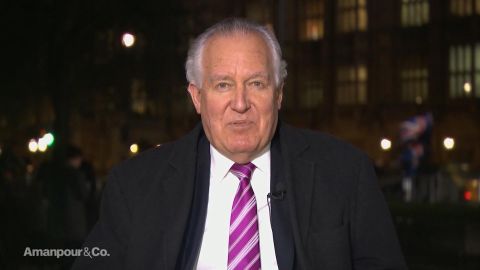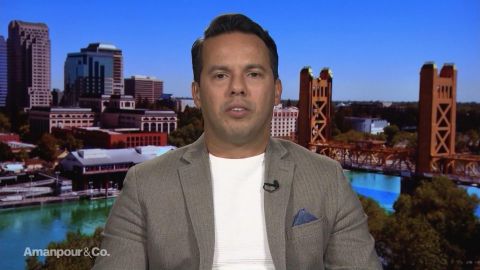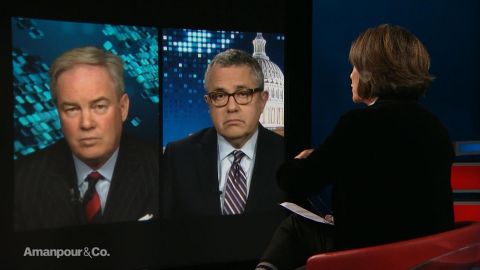Read Transcript EXPAND
TREVOR POTTER: The reality is, we have all been told that the Department of Justice has a policy of not prosecuting a sitting president. So, the question becomes, does the department and its prosecutors wait until the end of Trump’s term and then bring these charges? And of course, a corollary question of does Congress look at this and say, “Well, the law was violated whether or not there is a criminal prosecution it at this stage”? But it’s — at some stage, going to boil down to a question of who’s telling the truth here. I’m reminded of the great Watergate line, which is what did the president know and when did he know it.
CHRISTIANE AMANPOUR: Yes.
POTTER: We now are aware that the president knew a great deal about this much earlier than he said, that he was in the middle of it. So, we’ll have to see whether any more information develops as a result of what we’ve already seen in court now.
AMANPOUR: So, Jeffrey, any more information? What do you expect to come out more and what do you think as Trevor just mention, yes, it’s problematic depending on, you know, where the truth is, he suggested that, you know, the Congress has a choice as to whether to, you know, prosecute, you know, the difference between political and what the Justice Department thinks? What do you think Congress will do, particularly in the House where they now will be taking over the chairmanship of all of these committees?
JEFFREY TOOBIN, CNN, CHIEF LEGAL ANALYST: Well, I think — you know, Trevor made a very important point, which is that under Department of Justice policy the president can’t be prosecuted while he’s in office. So, the issue is not going to be criminal prosecution of President Trump, it’s going to be impeachment. Will Congress take some action against the president while he is in office? And I think the answer currently is not yet. There is not enough evidence yet for it to persuade the Democrats that it is worth proceeding here because, you know, as your viewers may know, our system for removal of presidents is you have to get a majority in the House of Representatives and then two-thirds, 67 votes in the Senate. There is no way there are 67 votes in the Senate. And as there was Republicans discovered when they had an unsuccessful effort to remove President Clinton from office in 1998, the public doesn’t like impeachment efforts that go nowhere. You either have to kill the king or don’t attack him. And the Democrat I’ve spoken to, Nancy Pelosi, who will presumably be the new speaker, Jerrold Nadler who will be the new chairman of the Judiciary Committee, they say, “We are not proceeding with impeachment unless we can really have a strong belief that the Senate is going to really — going to remove him from office and we are nowhere near that at that — at this point.” So, I think there will be investigations from the House of Representatives but removal from office is really not on the agenda based on the evidence we know now.
About This Episode EXPAND
Christiane Amanpour speaks with British House of Lords member Peter Hain about Brexit; and Trevor Potter & Jeffrey Toobin about the mounting legal pressure on President Trump. Michel Martin speaks with Rev. Samuel Rodriguez, whose Latinx community and church are at odds over President Trump’s actions.
LEARN MORE


